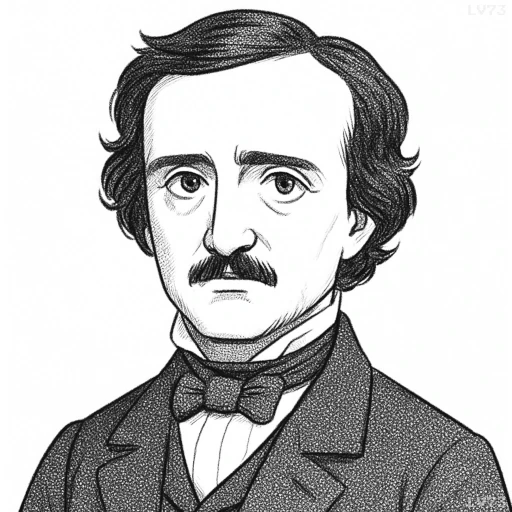“I have no faith in human perfectability. I think that human exertion will have no appreciable effect upon humanity. Man is now only more active – not more happy – nor more wise, than he was 6000 years ago.”

- January 19, 1809 – October 7, 1849
- American
- Novelist, poet, critic
table of contents
Quote
“I have no faith in human perfectability. I think that human exertion will have no appreciable effect upon humanity. Man is now only more active – not more happy – nor more wise, than he was 6000 years ago.”
Explanation
In this quote, Edgar Allan Poe expresses his skepticism about the idea of human progress and perfectibility. He argues that, despite all the advancements in technology, knowledge, and society, humanity has not significantly evolved in terms of happiness or wisdom. While humans may be more active—likely referring to greater productivity, busy lifestyles, or the pace of modern life—Poe believes that these changes have not fundamentally altered the core nature of mankind. His view suggests that, despite exerting effort for improvement, human beings are still driven by the same flaws, desires, and limitations they have faced for millennia.
Poe’s perspective reflects the Romantic critique of Enlightenment optimism, which held that reason, science, and human effort would lead to continuous progress. The Romantics, including Poe, were often disillusioned with this view, seeing human nature as constant and unchanging, regardless of technological or societal advances. Poe’s words echo a cynical realism that suggests progress might be more illusory than real, and that human beings remain trapped in a cycle of striving without true enlightenment or fulfillment. This disillusionment with the notion of perfectibility can be linked to his broader themes of human suffering, existential questioning, and the inherent limitations of the human condition.
In modern contexts, this quote challenges the idealism that often accompanies discussions about human progress and advancement. Today, with rapid developments in technology, medicine, and society, Poe’s skepticism still holds relevance—reminding us that, despite these external changes, we may still struggle with the same emotional, psychological, and ethical dilemmas that have always plagued humanity. His statement calls us to reflect on whether true happiness or wisdom can be achieved through external progress or whether it requires a deeper, internal transformation that is independent of time and technology.
Would you like to share your impressions or related stories about this quote in the comments section?


